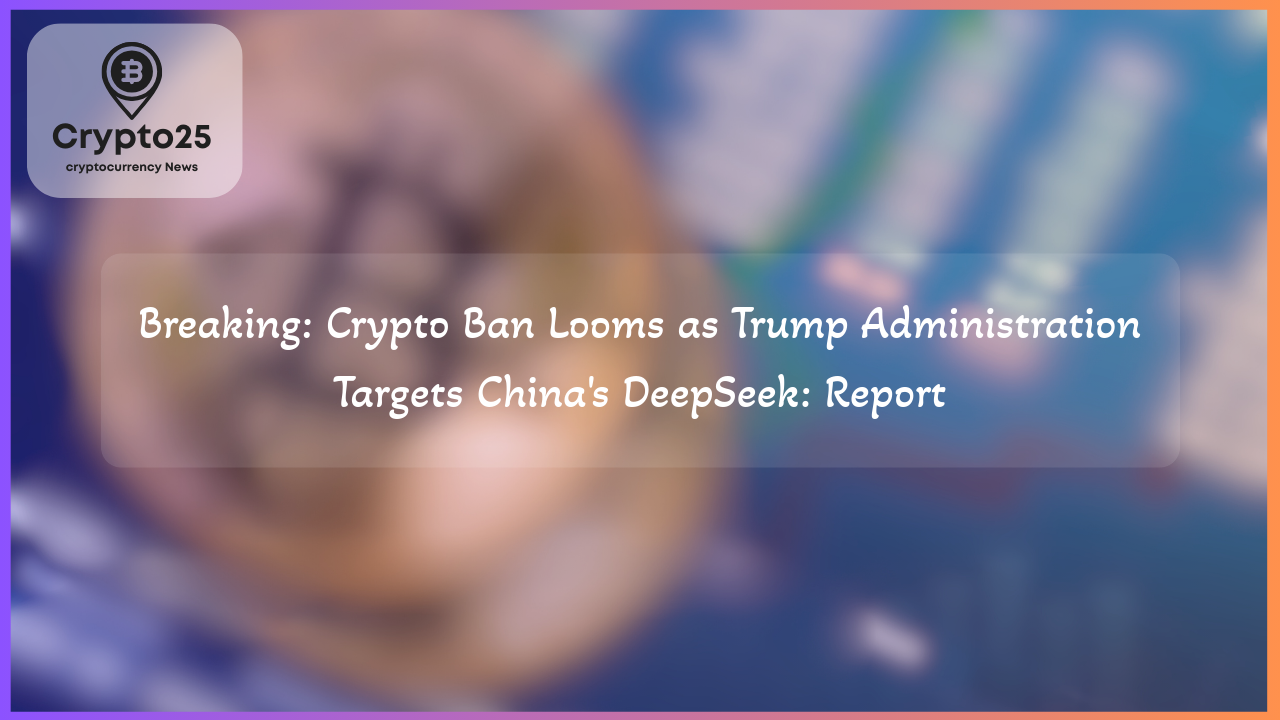
The U.S. government is intensifying its efforts to regulate foreign technology influences, with Chinese artificial intelligence company DeepSeek under scrutiny. This comes alongside increased examination of Nvidia, a prominent domestic chipmaker, due to fears that U.S.-made technologies might be enabling advancements in China’s AI development. As AI capabilities soar globally, Washington’s targeted policies indicate growing tension between the U.S. and China in the race for technological supremacy.
### U.S. Cracks Down on DeepSeek Amid Rising AI Concerns
DeepSeek garnered global attention in January by unveiling DeepSeek-V3, an advanced open-source AI chatbot. What made headlines, however, was the model’s training cost—reportedly just $6 million—significantly undercutting U.S.-based competitors like OpenAI. While this innovation highlighted China’s AI progress, officials in Washington voiced concerns over its implications for U.S. security and innovation.
A report from the U.S. Select Committee on the Chinese Communist Party accused DeepSeek of engaging in unethical practices. Allegations include funneling sensitive data to the Chinese government, leveraging American AI models without authorization, and breaching U.S. export controls by sourcing Nvidia chips banned under current regulations. The report also argued that DeepSeek trained its model using thousands of restricted chips—estimated at about 60,000 units—including 20,000 controlled by laws designed to limit access to sensitive technologies.
These findings come as trade policies between the U.S. and China become increasingly restrictive. The U.S. has ramped up tariffs on Chinese imports, heightened export restrictions on AI technologies, and imposed tighter controls in the semiconductor supply chain. Consequently, China responded with retaliatory tariffs, escalating what appears to be an ongoing technological and economic rivalry.
### Nvidia’s Role in the U.S.-China AI Tensions
Nvidia, a titan in the U.S. tech industry and a global leader in manufacturing AI-dedicated chips, faces scrutiny for its alleged role in empowering DeepSeek’s operations. A report revealed that Nvidia chips accounted for a significant portion of the hardware underpinning DeepSeek’s AI training. Furthermore, the U.S. Select Committee is investigating whether Nvidia complied with export controls and regulations imposed by the federal government.
In a proactive move, U.S. officials sent formal inquiries to Nvidia, requesting transparency about its business dealings in 11 Asian countries, including Singapore and Malaysia. The questions revolved around Nvidia’s customer base, communications with DeepSeek, and specifics regarding chip exports. A spokesperson for Nvidia stated the company has adhered strictly to U.S. government guidelines, adding that some reported revenues originating from Asia might reflect purchases made by subsidiaries of American buyers, where products were ultimately shipped to locations like Taiwan or the United States—not China.
However, the issue has grown beyond U.S. boundaries. In February, Singaporean authorities carried out arrests related to the unauthorized export of Nvidia chips, allegedly for DeepSeek’s use. Meanwhile, European nations, including Italy and France, are investigating the company for data privacy concerns, further compounding its challenges.
### The Global Race to Dominate Artificial Intelligence
The developments surrounding DeepSeek and Nvidia underscore intense global competition over artificial intelligence. DeepSeek’s groundbreaking chatbot underscores China’s rapid progress, which has fueled substantial investments and innovation within the country. The U.S. sees this as a potential threat to its status as the global leader in AI innovation, prompting strong policy measures to restrict the export of critical technologies.
Economic dynamics further illustrate the scale of this rivalry. The U.S. government’s $1.2 trillion tech industry valuation highlights its position in the global market. However, as academic partnerships and hardware sharing across borders increase, concerns grow about how these cooperative arrangements might inadvertently support the ambitions of rival economies like China.
| Title | Details |
|---|---|
| Market Cap | $1.2 Trillion |
| Key Export Controls | Nvidia Chips, AI Models |
As leading global powers vie for dominance, regulatory systems and trade agreements remain key tools used to navigate this competitive landscape. Whether through partnerships or restrictions, governments are molding the future of AI development while attempting to safeguard both technological progress and national security.
### What Lies Ahead?
The scrutiny of DeepSeek and corresponding investigations into Nvidia signal a broader shift in how nations approach AI governance and cybersecurity. For U.S. regulators, ensuring that cutting-edge innovations benefit domestic stakeholders remains a critical priority. Simultaneously, confronting potential misuse of these technologies abroad is a rapidly evolving challenge.
Global tensions in the AI sphere are set to continue, with multi-national cooperation, advanced research, and economic strategies all playing vital roles. Stakeholders should monitor these developments closely as countries work to define ethical standards and national priorities for artificial intelligence. Navigating such uncharted waters requires balancing open innovation with deliberate safeguarding of sensitive technologies.
